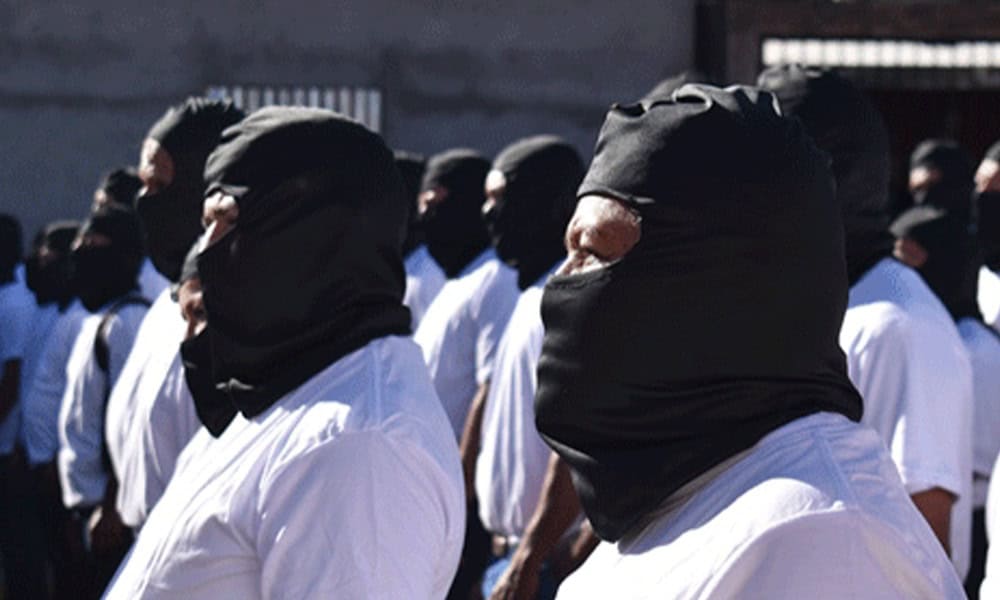With their faces covered in black hoods, thousands of civilians were sworn in by Nicaraguan authorities as “volunteer police,” a force created as part of a controversial constitutional reform that the opposition in exile describes as “paramilitary.” About 2,500 volunteer police officers, dressed in white shirts and black pants, lined up to take their oath on Wednesday and Thursday in the departments of Estelí and Madriz (north) before Nicaragua’s Police Chief, Francisco Díaz, according to images released by official media.
“We are also moving forward with new swearing-in ceremonies of our heroic volunteer police,” Vice President Rosario Murillo, wife of President Daniel Ortega, said on Thursday, reporting that the process began Wednesday and will continue in the coming days. The “volunteer police” was created as part of the extensive constitutional reform approved in November in the first legislative instance and will be endorsed in the new legislature, currently in session, by a Congress controlled by the ruling Sandinista Front (FSLN, left-wing).
Although the reform has not yet formally taken effect, thousands of men and women already make up what will be an “auxiliary and support body” to the security forces, bringing to mind what happened during the 2018 demonstrations against the government. During those protests, which according to the UN left more than 300 dead, hooded and heavily armed men, whom the government called “the people,” intervened to remove the barricades set up by protesters, many of them university students.
“They are brave men and women, Sandinista Front militants who are in permanent combat readiness to defend the revolution” and “peace,” said Díaz, according to the National Police’s digital site. The government considers the 2018 protests as a coup attempt sponsored by Washington.
“Hooded paramilitaries,” headlined Nicaraguan press outlets in exile in Costa Rica such as Confidencial and 100% Noticias. Nicaraguan writer Gioconda Belli, in exile in Spain, stated that “without any scruples” Ortega and Murillo are swearing in “paramilitaries.” “An army without law, repressive, which they have given constitutional rank,” she said on her X account.
The controversial constitutional reform extends the presidential term from five to six years and confirms the power Murillo already has by making it equal to Ortega’s, as it elevates her rank from vice president to “co-president.” Additionally, it gives the Executive control over state powers, which it defines as “revolutionary” and “socialist,” and establishes the FSLN’s red and black flag as a national symbol, the former guerrilla group that led the popular insurrection that overthrew dictator Anastasio Somoza in 1979.
Ortega, a 79-year-old former guerrilla who governed Nicaragua in the 1980s after the triumph of the Sandinista revolution, returned to power in 2007. Since then, his critics say, he has established a “dictatorship.”






